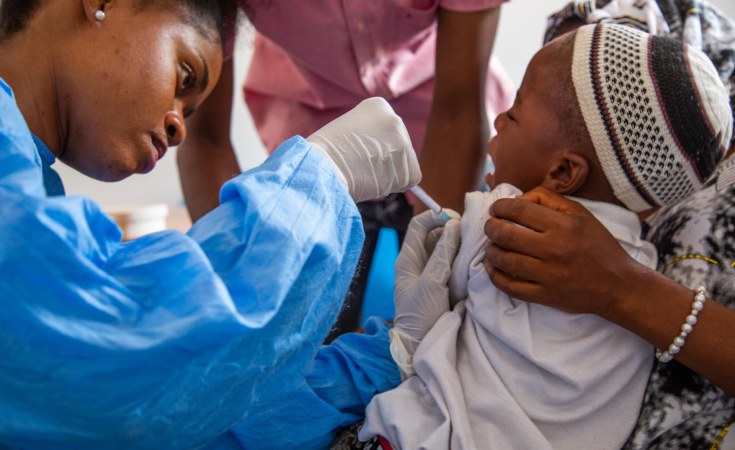Harare — The World Health Organization (WHO) has recommended a new, inexpensive malaria vaccine to prevent malaria in children that can be produced on a massive scale.
The new vaccine, R21/Matrix-M, created by the Jenner Institute at the University of Oxford in the United Kingdom, is expected to be made available in mid-2024, Dr Tedros Adhanom Ghebreyesus, the WHO director-general, announced on Monday October 2.
In its announcement of the news, Oxford, which developed the vaccine with the Serum Institute of India, said the institute already has the capacity to produce 100 million doses a year and can boost this to 200 million doses annually over the next two years.
Tedros said doses will cost between U.S. $2 and U.S. $4 each. In his remarks at the announcement, he added: "As a malaria researcher, I used to dream of the day we would have a safe and effective vaccine against malaria. Now we have two."
WHO recommended use of the first malaria vaccine, named RTS,S/AS01, in 2021 but demand has far exceeded its availability.
One of the worst scourges on humanity, malaria kills primarily children and infants. Tedros said that in 2021 there were an estimated 247 million cases, with 619,000 deaths.
WHO noted that malaria "places a particularly high burden on children in... Africa.... where nearly half a million children die from the disease each year." Nineteen in every 20 cases and deaths are in Africa, Tedros pointed out, and most deaths are of children under five.
Reacting to the announcement, the Roll Back Malaria (RBM) Partnership noted that the new vaccine will protect children from the most common and deadly form of malaria, Plasmodium falciparum.
WHO said clinical trials and other studies had shown that "in areas with highly seasonal malaria transmission (where malaria transmission is largely limited to four or five months per year), the R21 vaccine was shown to reduce symptomatic cases of malaria by 75 percent during the 12 months following a three-dose series. A fourth dose given a year after the third maintained efficacy. This high efficacy is similar to the efficacy demonstrated when RTS,S is given seasonally."

The organisation's regional director for Africa, Dr. Matshidiso Moeti, stressed the significance of the new vaccine, saying that it "holds real potential to close the huge demand-and-supply gap.
"Delivered to scale and rolled out widely, the two vaccines can help bolster malaria prevention and control efforts and save hundreds of thousands of young lives in Africa from this deadly disease."
The R21 vaccine still needs to be taken through further steps before it can be purchased internationally for a wider distribution.
At least 28 countries in Africa plan to introduce the malaria vaccine as part of their national immunization programmes, WHO says. The RTS,S vaccine will be rolled out in some African countries in early 2024, and the R21 vaccine is expected to become available in the middle of 2024.
Despite the good news of a second vaccine, the RBM Partnership is warning that the vaccines are "not silver bullets designed to solve all the challenges of malaria."
The partnership's chief executive, Dr Michael Charles, said countries face different challenges "and will need to determine how R21 and RTS,S can complement their existing malaria control strategies.
"This new vaccine will be highly effective to fight malaria, but must be used in tandem with other tools such as insecticide-treated nets, indoor residual spraying and preventive medicines to have the greatest impact."
He went on to add: "While this announcement is a step in the right direction, there are also still major hurdles to overcome. In the face of significant funding shortfalls and the growing threats of insecticide and drug resistance, and climate change, further investment must be urgently mobilized to scale-up, manufacture and roll-out malaria vaccines to ensure they are readily accessible to countries that decide to use them."


